There is no question that Christmas is a special holiday throughout the world. It is celebrated to commemorate the birth of Jesus Christ.
This deity is an individual who many Christians believe is the Son of God.
When you hear the name “Christmas”, the first thing you need to know is that it refers to the “Mass of Christ” (also known as Jesus).
It also is a time where many Christian individuals will go to a “Mass” service, which is also referred to as “Communion” or as a Eucharist.
In this setting, Christians will remember that Jesus Christ died on the cross for us and then rose again three days later.
The “Christ-Mass” service is a very special type of service indeed. It is the only one that is allowed to take place after sunset but before sunrise.
This mass is held at midnight. Additionally, even though the original name was “Christ-mass”, we now have shortened the name down to the term “Christmas.”
Christmas has now become a worldwide celebration, recognized even by people who do not profess to be Christians.
Whatever religious beliefs you might have, most people recognize it as a wonderful time to be together with family and close friends.
It is a great time to be grateful for what you have, and of course, a lot of people enjoy this time of year because they will exchange a lot of gifts with their other family members.
Giving and receiving presents is only the latest incarnation of this historic holiday, however.
The Date of Christmas
The exact date of birth of Jesus Christ has long been unknown. Although it is a great mystery, there are some likely candidates.
The life of Jesus is most recounted in the Bible, and this scripture does not give a birthdate. Of course, this all begs the question: just why do we celebrate the birth of Christ on the 25th of December.
Naturally, early Christians argued amongst themselves about when the appropriate date for celebrating the birth of Christ should be.
Most people now agree that the birth of Christ probably didn’t happen in year 1.
Rather, it probably happened between 2 BCE/BC and 7 BCE/BC. Most scholars think that the birth of Jesus most likely occurred in 4 BCE/BC.
Also, you should be aware that there is no “year 0”; it simply went from 1 BCE to 1 AD.
When was the First Christmas Celebrated On December 25th?
When was Christmas first celebrated on December 25th? The first recorded date of this celebration occurring on this date was in the year 336.
This was established during the reign of the Roman Emperor Constantine, who became the first Roman Emperor to follow Christ and be known as a Christian.
However, even though Constantine the Great encouraged the celebration of this holiday, it wasn’t an official Roman festival at that time.
Even when you consider this early information, there are still a tremendous amount of early stories, traditions, interpretations, and theories regarding how celebrating Christmas on this date got started.
Different Theories
One Christmas tradition that started very early is called The Annunciation, and it is a Christian tradition where they believe that it actually was on March 25th that the Angel announced to Mary that she would have this special child who would be the Savior of mankind.
One of the main reasons for this is because there are exactly nine months from March 25th to December 25th.
Incidentally, March 25th is also the day many ancient Christians believed that the world had been created.
March 25th was also chosen because many Christians believed that was also the day that Christ died in His adult years.
March 25th is also known as the 14th of Nisan in the Jewish Calendar, so they literally thought that Christ was born and died on the very same part of the year.
Another theory surrounding why many people believe that December 25th was chosen would probably have to be because it was the time of the Winter Solstice and a number of early pagan Roman winter festivals took place during this time.
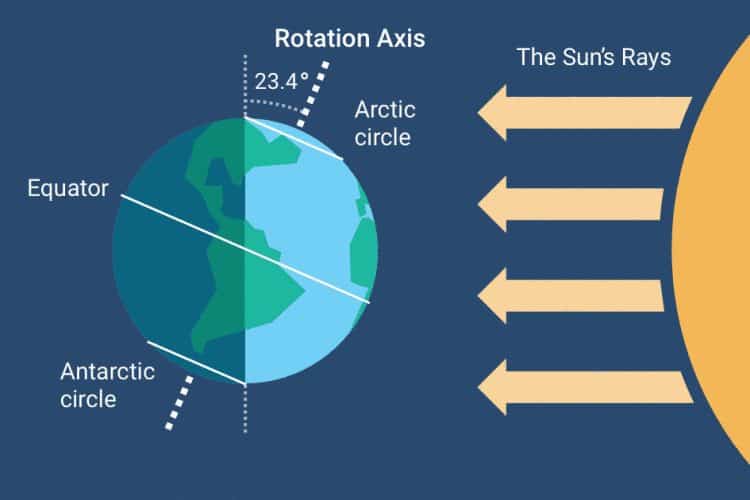
Celebrations such as “Saturnalia” and the “Dies Natalis Solis Invicti” were established near this date in December.
Thus, since people were already celebrating things anyway, the Christians decided to adopt this date for their own celebration as well.
The Winter Solstice is so named because it is the time of year where it is the shortest duration between the sun rising in the morning and the sun setting at dusk.
The Winter Solstice will happen either on December 21st or the 22nd, and it was a very important date for a pagan individual.
For them, it meant that winter had come to an end and spring was coming up.
The pagans realized that spring was going to get the victory, so they would kneel in worship to the sun for finally claiming the victory over the darkness that winter represents.
However, in some of the Scandinavian parts of the world, there are individuals who refer to the Winter Solstice as Yule. Many theorize that this is where we get Yule logs from.
Of course, it gets even more different in Eastern Europe simply because they refer to this festival as Koleda and not the Winter Solstice or Yule.
Roman Festivals
Saturnalia was a well-known Roman festival, and it took place between December 17th and December 23rd. It was utilized to commemorate the advent of a Roman god called Saturn.
It was also called Dies Natalis Solis Invicti, and it meant that you could recognize a birthday regarding the “Unconquered Sun” and it would be held on December 25th because the Romans were already celebrating the Winter Solstice.
Moreover, it meant that the “Birthday” of the pagan god Mithra was being celebrated as well.
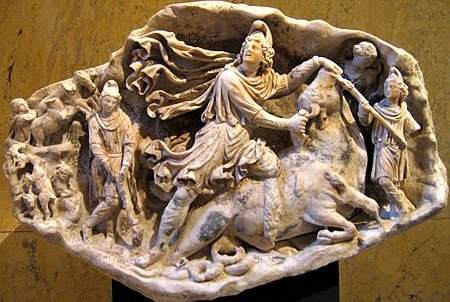
This means that the pagan religion of Mithraism recognized a holy day as “Sunday” and that is one of the main places where the word originated from.
Roman Emperor Aurelian was the creator of “Sol Invictus” in 274.
Although he might have been the first recognized one, there are actually records of early Christians recognizing 14 Nisan (25th March) and December 25th as early as 200.
December 25th in Other Traditions
Interestingly enough, it isn’t just the Christians that recognized the 25th of December in some manner. Jewish tradition has an important celebration called the Jewish Festival of Lights, and December 25th is when Hanukkah starts.
December 25th is called the 25th of Kislev in the Jewish calendar.
This Jewish holiday celebrates the momentous occasion when the Jewish people could re-dedicate and worship in their own temple after being barred from doing it for a tremendous amount of years.
Interestingly enough, Jesus had a very strong Jewish lineage, and this fact too probably led to the early Christians choosing December 25th as the day to celebrate their important Christmas holiday.
The Epiphany
The original church also celebrated Christmas on January 6th, and there was an important reason for that: this was also the time when the Epiphany was celebrated.
(The Epiphany is an important part of many Christian traditions because this was the revelation that Jesus was the Son of God).
Early Christians also cited January 6th as a time to celebrate the baptism of Jesus.
In this day and age, the Epiphany is also celebrated to mark the visit of the Three Wise Men to see the infant Christ, even though the early Christians used this date to celebrate both things.
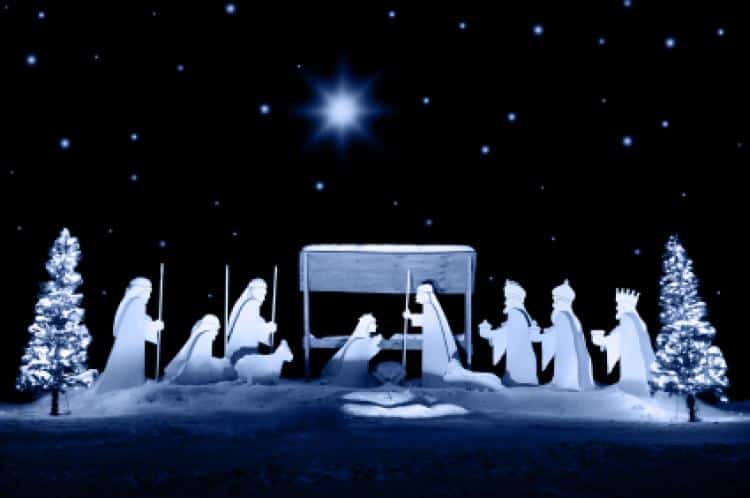
The early Christians believed that Jesus’ baptism was more important than his date of birth simply because his ministry officially began after he was baptized.
However, it wasn’t long before ancient Christians decided the birth of Jesus should have its own day of celebration.
The Julian and Gregorian Calendars
In order to fully understand the dates that recognize Christmas, it is also important to understand the concept of the Gregorian Calendar.
This is the current calendar that most people throughout the world utilize, and it was instituted by Pope Gregory XIII in 1582.
Before that, the world used the Julian Calendar, which was named for Julius Caesar.
However, the Julius Calendar had too many days for each year, making the Gregorian calendar quite a bit more accurate.
When Pope Gregory decided to make the switch, the whole world lost ten days. What literally occurred was that the day proceeding October 4th, 1582 was October 15th, 1582.
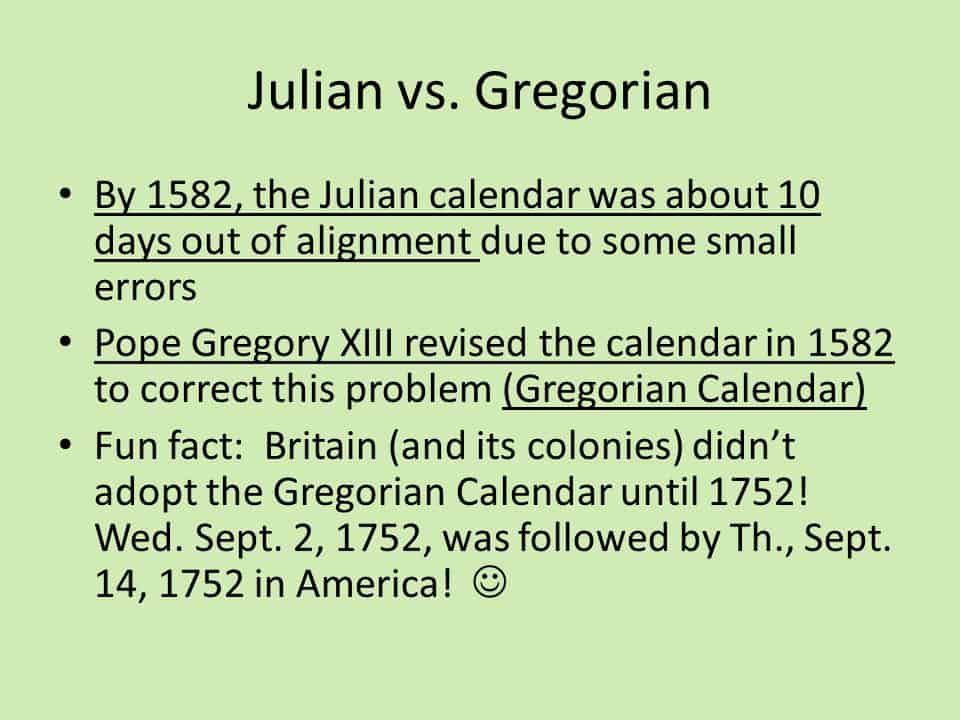
However, the United Kingdom did not follow suit on this important date change until September of 1752. The day of September 2nd, 1752 was immediately followed by September 14th, 1752.
Indeed, there are many Orthodox and Coptic Churches that still follow the Julian Calendar, so they celebrate Christmas on January 7th because that is what December 25th would have been if Pope Gregory hadn’t made the change.
The Armenian Apostolic Church also is a bit different than the others because they celebrate Christmas on January 6th.
Christians in the U.K. have a tendency to call January 6th “Old Christmas” simply because they realize this would have been the day for the Christmas celebration if we had stayed with the Julian calendar.
Plus, you’re in for another surprise: even though the calendar change was over 400 years ago, there are still a number of people who refuse to utilize the new calendar because they were “cheated” out of 11 calendar days!
Since Christians believe Christ is the light of the world, some will pick this date to celebrate his birth.
They have also taken over some of the customs of the original Roman Winter Solstice and incorporated Christian meanings into them.
Ideas such as the Holly, Christmas Carols and Mistletoes were all “borrowed” from other cultures!
St. Augustine of Canterbury
One person who is responsible for spreading the celebration of Christmas throughout the world as it is known today would have to be St. Augustine of Canterbury.
He promoted Christmas in the 6th Century to a number of regions run by Anglo-Saxon cultures.
Because St. Augustine was sent by Pope Gregory the Great, many western countries now celebrate Christmas on December 25th.
People from Britain and Western Europe took the practice of celebrating Christmas on December 25th all over the world.
There are many resources about the history of the dating of Christmas, including this resource on Bible History Daily (you will go to a different site).
So when was Jesus Born?
Although many people traditionally believe that Jesus was born in the winter, there are actually many strong possibilities for why Christ could have been born in the Spring or Fall.
The first reason is inherently practical: winters in Israel can get extremely cold, so shepherds likely wouldn’t be keeping sheep on nearby hills in the winter, especially considering how much snow those hills can get!
Within the spring months of March or April, a Jewish festival called “Passover” makes it a very busy time of year.
This festival is a commemoration of when the Jews had escaped a life of slavery in Egypt about 1500 prior to the birth of Christ.
This means that an immense amount of lambs would be needed for the Passover event since they would be sacrificed in the Jerusalem temple.
Considering that Jews from throughout Rome would be traveling to Jerusalem, this would probably have been a good time for the Romans to take a census.
And this is exactly where Joseph and Mary went in order to register for the census. Bethlehem is one the outskirts of Jerusalem about six miles away.
The Feast of Tabernacles
Of course, in the autumn there are a number of other different festivals occurring. The most notable one would be the festival of “Sukkot” or “The Feast of Tabernacles”.
In fact, this festival is actually mentioned the most amount of times in Scripture.
Jewish people use this festival to remember God for his provision during the times that they were wandering around in the wilderness after escaping Egypt.
They lived in the desert for 40 years and had to dwell in temporary shelters.
This is a festival where Jews live in temporary shelters outside, as they understand that the word “tabernacle” means “booth” or “hut” in its original Latin.
Numerous Bible scholars think that the birth of Jesus is likely to have happened during this time of year simply because of the fact people would be living in temporary shelters during this time and that there was “no room in the inn.”
The fact that Mary and Joseph didn’t have a temporary shelter when they journeyed to Jerusalem for the census is really not all that problematic either, simply because of the fact it wouldn’t be feasible for a pregnant woman to have a portable dwelling.
The possibilities for the Star of Bethlehem seems to point to either spring or autumn.
Another way that scholars try to date the birth of Jesus would be through a remarkable experience of a temple priest called Zechariah, who was incidentally married to Elizabeth, a cousin of Mary.
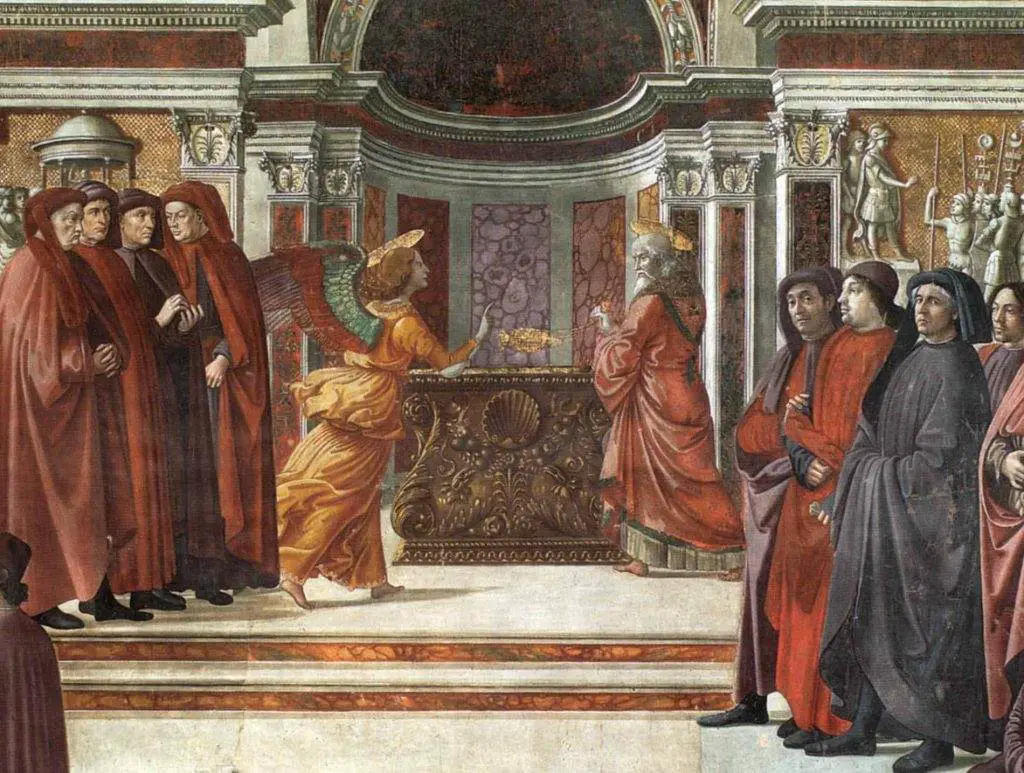
When people try to pinpoint Christ’s birth from the experiences of Zechariah, they come up with a September birth, which is the same time of year as the Sukkot Festival!
Of course, the other issue is that the exact year of Christ’s birth isn’t known.
This is due in part to the fact that our calendar system as we know it today wasn’t devised until the 6th Century by a monk named Dionysius Exiguus who was looking for a way to easily determine when Easter should be celebrated.
He actually had Christ being born in year 1 but he was off on his math so we are still not certain either way.
Besides Christmas, there are many other festivals that are celebrated around this time, including Hanukkah and Kwanzaa.
Either way, when you celebrate Christmas, never forget that it is based on a real event that occurred 2000 years ago! It’s the birth of our Lord and Savior Jesus Christ!
Another good read for our readers is why Xmas is called Christmas.
Learn More With the Help of Video
Main Points About Why is Christmas on 25th December
- Christmas is a time to celebrate the nativity of Jesus. However, no one knows what date Jesus was born, neither was the date ever stated in the bible.
- The time it was ever recorded that the birth of Jesus was commemorated was in Nisan 14. 336 A.D.
- The Christmas story provides conflicting clues. Some Christian scholars have argued that when Mary was told that she would have baby Jesus was on the 25th of March. So, nine months later would be on the 25th of December.
- At the end of the third century, the church settled for December 25th.
- For many Christians, the primary purpose of Christmas is not about the actual date that Jesus was born, but a day to commemorate when God sent his son to atone for the sins of humanity.
Conclusion
People all over the world celebrate the birth of Jesus Christ on 25th December. But there is so much happening before, on and after 25th December.
There are so many festivals and spiritual days like Advent and Boxing day.
I have shared all the facts about why Christmas is observed on 25th December.
Word Cloud for Why is Christmas on 25th December
The following is a collection of the most used terms in this article on Why is Christmas on 25th December. This should help in recalling related terms as used in this article at a later stage for you.
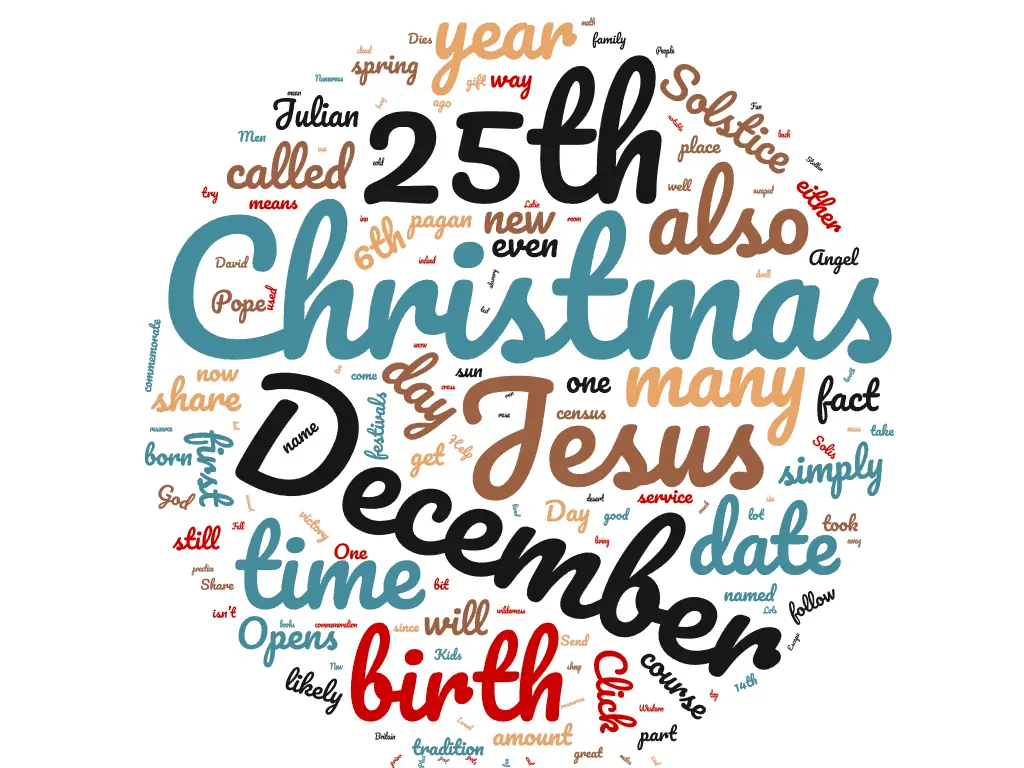
- https://www.biblicalarchaeology.org/daily/people-cultures-in-the-bible/jesus-historical-jesus/how-december-25-became-christmas/
- https://www.rd.com/culture/christmas-on-the-25th/
- https://www.washingtonpost.com/news/answer-sheet/wp/2015/12/25/why-is-christmas-on-dec-25-a-brief-history-lesson-that-may-surprise-you/
Last Updated : 06 February, 2024

Chara Yadav holds MBA in Finance. Her goal is to simplify finance-related topics. She has worked in finance for about 25 years. She has held multiple finance and banking classes for business schools and communities. Read more at her bio page.

I appreciate the in-depth analysis of the historical and religious significance of Christmas. The discussion on the birthdate and early celebrations sheds light on the complexities of this holiday.
The diverse theories surrounding the date of Jesus’ birth and the associated celebrations are captivating. This article has broadened my understanding of Christmas.
The article provides a comprehensive overview of the origins of Christmas. It presents a balanced view of the holiday’s history and traditions.
The analysis of the historical and religious context of Christmas provides valuable insights into the holiday’s origins. It’s enlightening to explore the diverse theories and traditions associated with Christmas.
I couldn’t agree more. The detailed exploration of the historical background and theories surrounding Christmas presents a fascinating narrative that deepens our understanding of this holiday.
The in-depth exploration of the historical and religious context of Christmas provides a comprehensive understanding of the holiday’s origins and traditions. It’s fascinating to consider the diverse theories and influences that have shaped this globally celebrated holiday.
The historical analysis is compelling and enlightening. It offers valuable insights into the diverse influences and traditions that have contributed to the celebration of Christmas.
This article provides a well-rounded perspective on the historical and religious significance of Christmas. It’s intriguing to explore the various theories and traditions associated with this widely celebrated holiday.
The theories presented here make sense, but it’s incredible how many different views and traditions surround the date of Christmas. This article has broadened my understanding of the holiday’s origins.
I found the historical context provided particularly enlightening. It’s amazing to see the evolution of Christmas traditions over time.
The exploration of different theories behind the choice of December 25th as the date for Christmas is thought-provoking. It’s intriguing to consider the various influences on the holiday’s origins.
The comprehensive and detailed analysis of the historical and religious origins of Christmas is insightful. This article offers a well-rounded perspective on the complexities of the holiday.
This article serves as an educational resource on the historical and religious significance of Christmas. It presents a thorough exploration of the holiday’s origins and traditions.
The comprehensive exploration of the historical and religious background of Christmas is both informative and thought-provoking. This article provides valuable insights into the origins and traditions of this widely celebrated holiday.
I share your sentiment, Richardson Ben. The depth of historical and religious analysis in this article offers a compelling perspective on the origins of Christmas and its diverse traditions.
The informative nature of this article provides a robust overview of the historical and religious significance of Christmas. It’s fascinating to delve into the complexities of this widely celebrated holiday.
I agree, Campbell Craig. The historical and religious background of Christmas is intriguing, and this article offers an in-depth exploration of the holiday’s origins and traditions.
The exploration of the historical background and different theories behind the date of Christmas is fascinating. This article has deepened my appreciation for the holiday’s rich traditions and origins.
The comprehensive discussion on the origins and historical context of Christmas is thought-provoking. It’s intriguing to learn about the different influences that shaped this holiday.
The detailed exploration of the origin of Christmas and the different theories surrounding its date adds a deeper layer of understanding to this festive holiday.
The historical and religious insights provided in this article offer a comprehensive view of the origins of Christmas. It’s intriguing to consider the diverse theories and traditions that have shaped this holiday.
The well-researched analysis of the historical and religious aspects of Christmas is thought-provoking. It emphasizes the rich traditions and diverse influences that have contributed to this festive holiday.
I found the historical and religious analysis particularly enlightening. This article offers a thought-provoking exploration of Christmas and its diverse influences.
This article is extremely informative and well-researched. The historical background and theories surrounding Christmas are fascinating to delve into. It’s great to see a well-rounded perspective on the origins of such a widely celebrated holiday.
This is one of the most detailed articles I’ve read on the subject. It really sheds light on the historical and religious significance of Christmas.
I absolutely agree with you, Alison88. It’s refreshing to see the topic of Christmas explored in such a comprehensive manner.